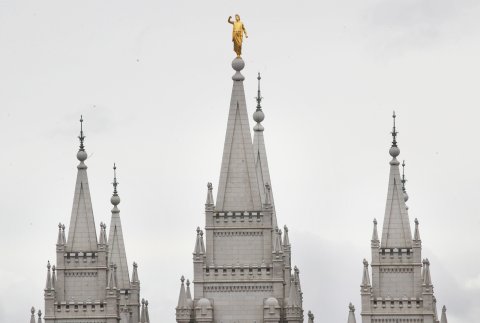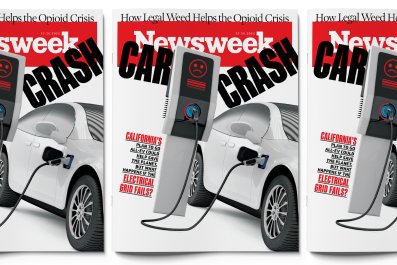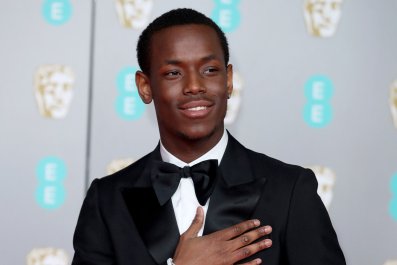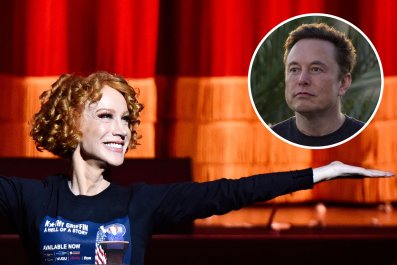Over the weekend, a 22-year-old man opened fire on a Colorado Springs nightclub during a drag performance, leaving five people dead and a nation in mourning and seeking answers for what could have radicalized such an individual to wage senseless violence against the LGBTQ community.
Some pointed to his family—the shooter's grandfather was a Republican member of the California Assembly who once compared the January 6 riots at the U.S. Capitol to the American Revolutionary War. The lawmaker, Randy Voepel, has said he hasn't spoken to his grandson in at least a decade.
Others sought to blame the failures of law enforcement, questioning both the strength of Colorado's red flag law and the fact that the shooter was previously known to police.
More, including Transportation Secretary Pete Buttigieg, cited the positions of the modern Republican Party as tools of incitement as it has made the LGBTQ community a cornerstone of its rhetoric.
A sizable number, however, pointed to the shooter's upbringing within the Church of Jesus Christ of Latter-day Saints—an institution that has long wrestled with its legacy of non-acceptance among the LGBTQ community.
"We don't get to pick and choose," Rosemary Card, a Mormon influencer and author of the 2018 book Model Mormon tweeted after the shooting. "We have to face it. Anti-LGBTQ rhetoric from the church influences members."
JUST IN: Heard back from the Church of Jesus Christ Latter-day Saints HQ in Salt Lake. They confirmed the suspected gunman in Saturday's shooting was on the membership rolls of LDS. 1/
— Nick Penzenstadler (@npenzenstadler) November 21, 2022
The church has condemned the shooting—and called the public reflex to condemn an entire religion based on the shooter's actions problematic.
But LGBTQ advocates were quick to highlight their own experiences within the church as well as Mormon leaders' reluctance to take tangible action to address the barriers they've built between the LGBTQ community and their religion.
While members of the LGBTQ community are permitted to remain a part of the Mormon community, the LDS church does not allow same-sex couples to marry or maintain a physical relationship, nor are they permitted to receive church ordinances.
Speaking at Brigham Young University in 2021, its former president, Jeffrey Holland, called on adherents of the faith to deploy a "little more musket fire" against those who seek to degrade the institution of marriage within the church, drawing widespread criticism from those within the religion as well as outside of it.
Before that, BYU's "honor code" inspired protests within the Mormon-dominated student body, who considered it a stain on an otherwise great institution.
Btw here’s the clip of Elder Jeffrey R. Holland talking about “musket fire” last year at BYU for anyone who wants it.
— Clayton (@MintyHippoPrime) November 21, 2022
Figure it might come in handy pic.twitter.com/LhCpGhON9U
While many in the faith agree it is not fair to malign an entire religion for one man's actions, they also agree it can't avoid its own complicity in perpetuating a culture that fundamentally believes the LGTBQ community's existence is incompatible with the teachings of its god.
Though recent polling in the LDS-owned Deseret News earlier this year showed nearly three-quarters of all Utahns support marriage equality, the church itself does not, and has declined to alter its teachings to adapt to shifting attitudes toward the LGBTQ community.
And throughout its history, queer Mormons within the church have found themselves faced with the impossible bargain of compromising their religious community for their sense of self, leaving some with a conflicted sense of their religion.
One of those individuals is Celeste Carolin, executive director of the Mormon LGBTQ advocacy group Mama Dragons.
Carolin, who was raised within the church and attended BYU in the late 2000s, told Newsweek she regularly deals with families who feel torn between their faith and the desire to advocate for their children, leaving them in a position where they feel they have no choice but to leave their faith community.
She herself was sent to talk with a dean at the university when she was outed as gay while attending BYU, while many of the parents she talks with feel accepting their child for who they are is almost contradictory to the lessons they had been instilled with their entire lives.

"There has to be some type of navigation of your faith to make that happen," she said in an interview. "And I think that's where the whole system kind of breaks down.
"If you ask a mother to be like, 'Okay, here's my child I've known my entire life to be the exact person that they are,' and they tell you something about themselves that is different than what you knew before...they feel like they have to then choose between their child and their entire culture."
LGBTQ advocates say the church has recognized the need to evolve, pulling from the generational trauma of persecution that remains at the core of the Mormon religion, to be accepting and kind.
Last week, the LDS issued a statement saying it was "grateful for the continuing efforts of those who work to ensure the Respect for Marriage Act includes appropriate religious freedom protections while respecting the law and preserving the rights of our LGBTQ brothers and sisters."
Though not a full-throated endorsement of gay marriage, the move was seen as a step forward for the conservative institution.
Troy Williams, executive director of Equality Utah, an LGBTQ advocacy organization, credited the church's influence as a powerful driver in motivating state officials to support same-sex marriage protections, a significant departure from its 2015 policies threatening same-sex partnerships with excommunication.
The church was also instrumental in helping Equality Utah pass LGBTQ inclusive housing and workplace protections within the state.
Above all, Williams said the church has taken a good faith effort to bridge the divides between their communities, and advocate progress, out of the recognition that failing to denounce hatred will only lead to more.
"We have to be able to acknowledge progress, even when it's not perfect," he said. "We're going to have to transcend the extreme political polarization, and have to find a way to coexist.
"We have forgotten pluralism is a foundation of our nation, and we have got to figure out how we can live together despite our differences. If we don't, more violence will continue to erupt."
The church still may not be there.
Sara Burlingame, an LGBTQ advocate in neighboring Wyoming, recalled the lack of a reckoning that came about in her state following the murder of Matthew Shepard, a gay University of Wyoming student whose murder prompted the passage of national hate crimes legislation.
While she recalled some in the state affirming at the time that a murder seemingly motivated by hate was not representative of the state as a whole, it was still a product of a culture that wasn't outwardly accepting of the LGBTQ community—one that can be found not just within the LDS, but within other congregations and institutions.
"I just think of how Wyoming was immediately defensive, that 'this is not who we are,' that these murderers are not us, that they came from nowhere, because it was so shameful to be misunderstood that way instead of doing the hard work that would offer healing," she said.
"We needed to be asking how these men went to our schools, worshipped in our churches, ate at our dinner tables, and not hear a message that said, 'You can't kill gay people.' That's the question," she said.
"And in asking that question, people of faith need to be particularly aware of the need for humility, of the need for grace, and not to just shut down and be defensive. That's the only path forward," she added. "That's the only way we get out of this cycle."
The question now is whether the church is ready to take that step—particularly as its core tenets have come under renewed scrutiny.
"I think that these little movements give people a lot of hope," said Carolin. "But I don't think that they're thinking about the end goal, what we're asking of the LDS church. It's all in that doctrine."









